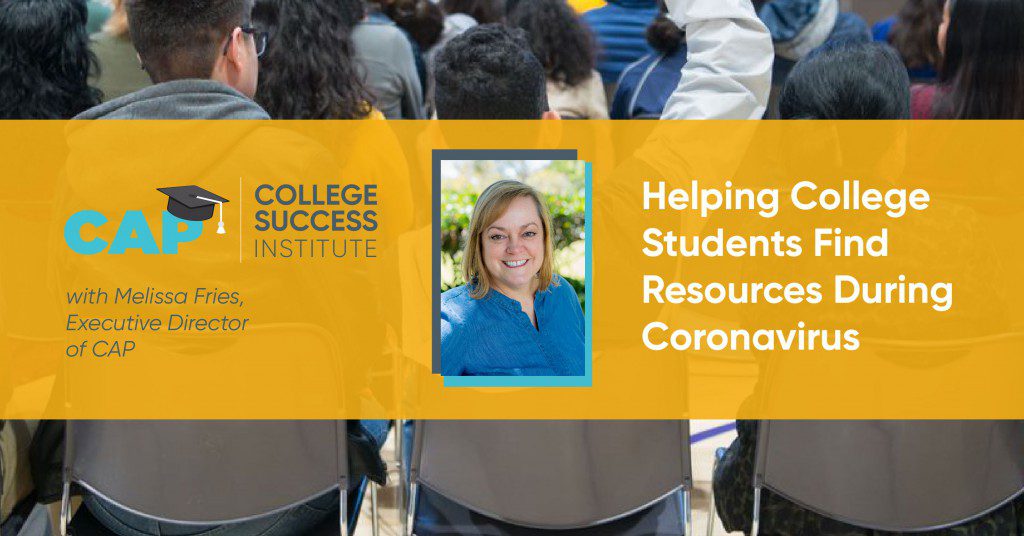
Helping College Students Find Resources During Coronavirus
COVID-19’s college campus closures have disproportionately impacted lower-income students spotlighting already existing inequities. Many are now grappling with disrupted lives and academic journeys, figuring out how to support themselves in a shuttered economy. Making Waves’ College and Alumni Program (CAP) quickly recognized that this crisis wasn’t like anything we, or our students, had ever experienced. It demanded an immediate response from us to help buffer students from the most severe consequences and help them quickly re-establish their lives, safeguarding their academic progress.
Some of our CAP students who attend colleges far from home found themselves stranded, with literally no way to get home. Thankfully, we were able to deploy our emergency fund to help students purchase airplane, train and bus tickets home.
Getting off campus and back home, however, was just the first step in an ongoing journey for our low-income students. Many—including some who receive financial aid or work-study—must work full- or part-time jobs while studying. Leaving campus and returning home rendered these students out of work and, they can’t rely on financial support from their parents, especially at a time when most families are struggling to make ends meet. To help support our students, we distributed information on essential resources, including local food banks and food stamp eligibility, as well as local social services and how to file for unemployment aid. Additionally, there is short-term help available for storage and many colleges have emergency grants and loans available to support students during this time. We are encouraging students to reach out to their financial aid office to ask about emergency grant funding.
As the federal government continues to roll out relief programs, we’re keeping our students up-to-date, making the resources easy to find and navigate. CAP supports many students who are undocumented and will, therefore, face barriers to accessing vital resources. CAP coaches are ready with important information about where undocumented students can find emergency relief and organizations that can help them and their families in this time of need.
Continuing to make academic progress is a key area of focus. With classes moved to virtual settings and most distance learning tools requiring internet access and increased bandwidth, issues about access to technology are more at the forefront than ever. Comcast has taken the unprecedented step of offering free internet to qualifying low-income households for two months. T-Mobile is offering its customers free data and a free two month subscription to YouTube Premium. CAP coaches are also walking students through the process of setting up remote access to their college networks, which can be a stressful endeavor. CAP’s technical competency and infrastructure enabled us to roll out a purely virtual experience with relative ease, something not all organizations are able to do. We’ll discuss this further in an upcoming article.
CAP’s approach in the initial stages of the COVID-19 crisis show the importance of being prepared to deploy resources quickly—whether directly or in the form of information. Not every organization that works with college students has the resources to disseminate emergency funds, but being able to quickly provide access to resources and help guide students through the process of securing those resources are great first steps. Many of those who don’t have this kind of support are seeing their college experience come to an abrupt halt and find themselves trapped in difficult situations with no clear path forward.
